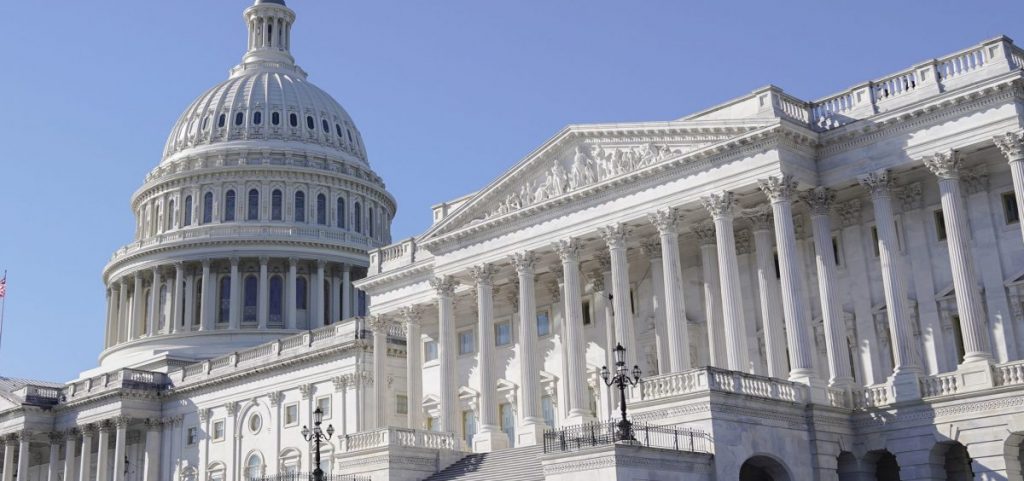News
Congress avoids shutdown, setting up spending pileup for early next year
By: Deirdre Walsh | NPR
Posted on:
WASHINGTON (NPR) — Congress is doing what it usually does when it can’t negotiate a deal on annual spending bills to avoid a government shutdown — kicking the can for a couple of months. But this time they are setting up a headache.
The House and Senate both easily passed a stop-gap spending bill this week but that was the easy part. The road to a bipartisan, bicameral budget deal in early 2024 is already looking like it’s full of landmines.
A day after the House overwhelmingly approved a stop-gap bill to give more time to pass individual spending bills sharp a group of House Republicans blocked the speaker from moving forward on one of those bills. Some were unhappy the speaker proposed a bill without any spending cuts — his decision to get Democratic votes and avoid a shutdown. The House left earlier than planned for the Thanksgiving holiday without a clear plan to pass the five remaining bills — GOP leaders can’t even get lawmakers on the same page to approve procedural votes to debate them.
“Unfortunately, it’s hard to execute a play when you don’t have a team,” Rep. Dusty Johnson, R-S.D., told reporters. “If the Republican conference was unified, I don’t have any doubt that we could secure more conservative victories in the funding battle to come.”
The continuing resolution, or CR, funds four federal agencies until Jan. 19 and the rest until Feb. 2. But that leaves the two chambers with the task of negotiating all 12 annual spending bills by early next year, and getting them signed into law by the president. If that doesn’t happen, an across-the-board spending cut of 1% hits all agencies in April. So far, the House has passed seven and the Senate has approved three.
Even before the House and Senate committee leaders can start negotiations, they have to agree on how much money overall to budget for federal agencies. There was a deal on a top-line figure set in the debt ceiling deal that passed this summer, but the House is drafting its bill using a lower number and the Senate is accounting for some emergency programs in its baseline, and the difference amounts to roughly $70 billion.
“We need a clarification of that, because the differences are rather substantial between the number that we’re at and the number that the Senate is using, ” Rep. Mario Diaz-Balart, R-Fla., told reporters Wednesday.
House Rules Committee Chairperson Tom Cole argued the number should be the one set by the debt deal. “I think to start playing around with it is to undo the law. And I think that’s a difficult process.”

Conservatives unhappy about stopgap bill to avoid shutdown
Ohio Rep. Warren Davidson, a member of the House Freedom Caucus, told NPR that Speaker Mike Johnson, R-La., “still has to recover” from his move to propose a bill that didn’t include any spending cuts, saying “it was definitely a bad decision.”
Davidson wasn’t one of the group of conservatives who blocked debate on a spending bill Wednesday, but for those who did it was viewed as retaliation for not pushing harder to hold the line and force more spending cuts.
For now there’s no talk about moving to oust Johnson, like a group of Republicans did when then-Speaker Kevin McCarthy moved a bipartisan bill to avoid a shutdown earlier this fall. Davidson said about Johnson, “people want to work with him, he’s a good man, it was just a bad decision.”
Speaker Johnson huddled with a group of the hardliners on the House floor on Tuesday, shortly before the vote.
Rep. Ralph Norman, R-S.C., voted no on the measure, but he said it was a good discussion with Johnson about the upcoming debate in January and the strategy to pass GOP bills to strengthen his hand in talks with Senate leaders.
Norman summarized Johnson’s message: “Look, guys, I’ve been in office 19 days. Give me some time. Go home, eat turkey, come back, get ready to work.”
Norman believes that Johnson will be able to talk to the various factions inside the GOP conference and broker some kind of path forward. “One thing that’s unique. We trust what he says,” a reference to the distrust some had of former Speaker McCarthy’s negotiations with the groups that failed to yield any agreement on moving spending bills that included different priorities for different groups of members.
Johnson says his party has work to do in the next couple of months.
“Republicans have a choice. We can work together to get conservative victories, or we can bicker, squabble, take hostages, and lose. And when you’re part of a team that requires some give and take, when you’re on a team, it requires you understanding you’re not going to win every single battle, but that if you stay united, you have an opportunity to win the war. Some of my colleagues, I don’t get the sense that they’ve been a part of very many successful teams,” Johnson said.
Some Republicans admit the House may not be able to pass the full 12 bills, but they say bringing them all up for votes and allowing debate demonstrates that they are focused on changing how Washington spends money each year.
In terms of that new definition of getting their work done, Idaho Republican Mike Simpson, a veteran on the spending panel, says “it is the reality of where we are right now. But he doesn’t think the two-step process the speaker set up will change things significantly, and divided government leaves the House with one path.
“I think we’ll come to an agreement with the Senate and then I think they’ll pass over here. Now it’ll be with Democrat and Republican votes.”
NPR’s Franco Ordonez and Eric McDaniel contributed to this story.
Copyright 2023 NPR. To see more, visit https://www.npr.org.9(MDU1ODUxOTA3MDE2MDQwNjY2NjEyM2Q3ZA000))

